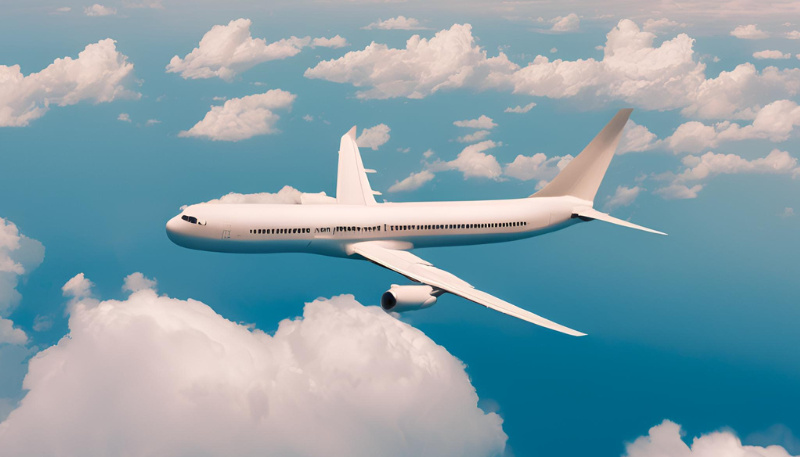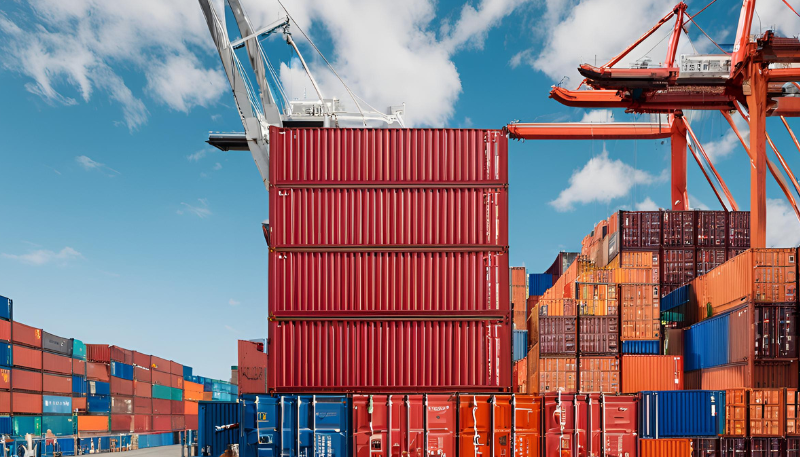Therefore, the current situation favours those who have fixed prices with guaranteed space for the whole of Q4 2024, even though the price level for these contracts was initially slightly higher.
The good news for importers from India, Pakistan and Bangladesh is that import prices from these regions, even taking into account the calm situation in the transhipment ports, are on a downward trend, although shippers are very cautious in their reduction and the price level is still slightly higher than the current price level for import shipments from the Far East.
The stevedores are also preparing for the break-up of the 2M Alliance and the formation of a new one called Gemini (we have informed you about this in previous newsletters). They haven't revealed the details of how it will work yet, but the new Gemini Alliance, in particular, is preparing a groundbreaking project that goes completely against the grain of current developments. The plan is to reduce the number of directly navigable ports and instead expand the number of ports served by smaller ships called feeders. These will fill the mega-ships at the main, base ports sailing to Europe.
EXPORT SHIPMENTS
The situation in the export direction has temporarily stabilized, also thanks to the end of the strike at the US ports on the East Coast and the Gulf of Mexico, which finally lasted from 1 October to 4 October. Even so, it put wrinkles on the foreheads not only of shipowners but also of many exporters. Why only temporarily? An agreement has been reached between the unions representing the longshoremen and the port operators to extend the "current" contract until 15.1.2025, with the proviso that a new contract will be drawn up incorporating the points agreed by both parties. It is therefore hoped that what has been agreed at the table will also apply in writing and that the new Contract will be officially signed in January next year.
However, even the above-mentioned 4 days of strike had a very negative effect on the flow of goods and disrupted the supply and customer chain. A large number of containers bound for the USA were shipped by shippers
were unloaded at ports in the Caribbean and, as these ports do not have as much capacity, there was overcrowding. This is also the reason why shippers have started to impose congestion surcharges on direct export shipments to these ports.
On a positive note, the surcharges that the shippers had announced in connection with the strike on shipments to the USA were cancelled after the strike ended, as they were not justified and the shippers would have had a very difficult time justifying their application. It remains to be seen whether the price level for export shipments to the USA, which have seen a significant price increase over the last 2 months, will also stabilise. The preconditions are there.
We are also closely and anxiously watching the development of the conflict in the Middle East, which is having a negative impact on the stability of the shipping services to the region. There are constant changes that are not conducive to smooth trade.
RAIL TRANSPORT
After the halt and complication of shipments at the Malaszewice terminal caused by the recent floods, operations have recovered and most of the delayed containers have been cleared and delivered to the consignees. Train traffic has returned to its old patterns with available capacity in China, with transit times ranging from 35 to 40 days door-to-door. For importers looking to speed up shipments even further, express service is still available for the FCL variant. This allows for a reduction of 5 to 7 days in transit time due to faster departure from the terminal and priority for container transshipment at the border crossing between China and Kazakhstan.
A new rail alternative: Southern route (Middle Corridor) outside Russia and Belarus
An old rail transport line - the Southern Route across the Caspian Sea - is emerging on the market. It had already appeared after the outbreak of the conflict between Russia and Ukraine, but it did not make much sense from the customer's point of view. The price of more expensive train transport with transit times longer than sea transport was simply not attractive. However, we did not dismiss this alternative from consideration. The product has evolved considerably, and after the transports we have made we can confirm that the current transit times are around 45 days door-to-door, which is very similar to the transit times of trains running on the northern route at the moment. In addition, this option may be suitable for companies that refuse and do not use rail connections via Russia and Belarus. If you are interested in this transportation option, FCL only for now, please feel free to contact us and we will be happy to offer this service.
AIR TRANSPORT
In 14 days we will see the end of the summer schedule and the winter one, usually "more expensive", will be next. This expectation is already starting to be reflected in import rates, see below, and in export rates, e.g. to the USA. Surprisingly, despite the highly unstable situation in the region, those to the Middle East are not rising so fast yet. Full import capacities from China are also feeding back good rates. When exporting to China in particular, it is therefore worth taking air freight into account, even for heavier shipments!
IMPORTS FROM ASIA
The Christmas and e-commerce season is starting to have an impact on capacities and prices from both China and Taiwan. Prices are rising and what was true yesterday may not be true today. So, when asking for prices ahead of time during this period, you better take this into account. On the other hand, prompt cooperation and delivery by the shipper can save you costs.
SUPER-ECONOMY ALTERNATIVE
For shipments from China that are already around 1000 kg and their implementation by air transport with direct connection or economy solution is so very expensive, but train transport is still slow for you, we offer a super-economy service with a transit time of 13-18 days.
CBAM and thematic webinar
Please note and remind you that there are only a few days left to submit your CBAM reporting. By 30 October 2024, the actual emission values for imports for the 2nd quarter of this year must already be reported.
Reporting declarants are liable and may be subject to penalties if they fail to comply with the CBAM reporting obligation and fail to take the necessary steps. Reporting Declarants must make every effort to obtain actual emissions data from their suppliers or producers of CBAM goods.
If reporting declarants ultimately fail to obtain actual emissions data, they shall select the new option 'Actual data not available' in the 'Type of determination' field.
If this option is selected, the CBAM report will be formally considered incorrect/incomplete, but can be submitted as such.
In this case, you must also use the "Additional Information" field to provide a justification for the lack of actual emissions data and upload supporting documents on the "Supplementary" tab to confirm the unsuccessful efforts and steps taken to obtain data from suppliers and/or manufacturers.
Reporting declarants that have already submitted a CBAM report using the previous methodology (it was previously reported that '0' emissions could be declared) do not need to resubmit these reports.
These days we are also finalizing the preparation of a webinar on CBAM and the upcoming similar obligation called deforestation, which should take place on 5 November in the afternoon. We expect to send out an invitation within this week.





